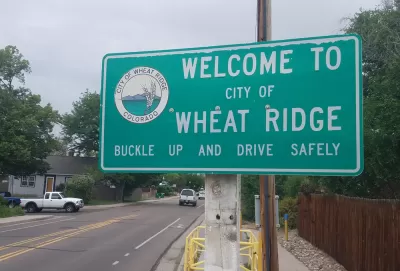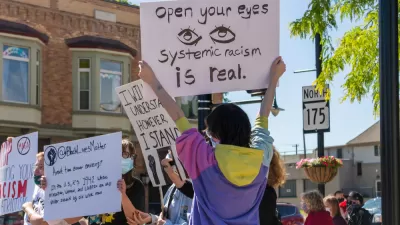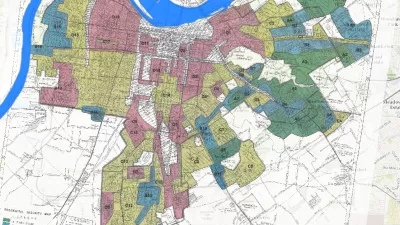A symbolic, but necessary, action.

The Denver suburb of Wheat Ridge City Council recently approved a resolution declaring race- and religion-based covenants ‘illegal and unenforceable,’ according to an article by John Aguilar for the Denver Post.
According to Aguilar, the resolution “directed staff to find city-owned properties that might have such stipulations and remove them from real estate records. The city also pledged to ‘prepare and make available to private property owners the materials to remove such covenants as permitted by statute.’”
As noted by Aguilar, Wheat Ridge is one of the first municipalities in the state to produce such a resolution, although some states, such as Connecticut, have recently passed legislation to the same effect.
“To some, Wheat Ridge’s efforts might seem unnecessary and redundant given the U.S. Supreme Court’s Shelley v. Kraemer ruling in 1948, which struck down race and religion-based covenants as illegal. The court’s opinion was further codified 20 years later, when the Federal Fair Housing Act banned race-based deed restrictions once and for all,” writes Aguilar. While conceding that the resolution passed unanimously by Wheat Ridge leaders on Monday evening is largely symbolic, [Wheat Ridge Mayor Pro Tem Rachel] Hultin said it is important to acknowledge and address the outwardly racist policies that shaped housing policy in Colorado, and the country as a whole, for decades.”
FULL STORY: Wheat Ridge revisits racist history in housing policy, “untying these nasty, nasty knots”

Alabama: Trump Terminates Settlements for Black Communities Harmed By Raw Sewage
Trump deemed the landmark civil rights agreement “illegal DEI and environmental justice policy.”

Planetizen Federal Action Tracker
A weekly monitor of how Trump’s orders and actions are impacting planners and planning in America.

The 120 Year Old Tiny Home Villages That Sheltered San Francisco’s Earthquake Refugees
More than a century ago, San Francisco mobilized to house thousands of residents displaced by the 1906 earthquake. Could their strategy offer a model for the present?

In Both Crashes and Crime, Public Transportation is Far Safer than Driving
Contrary to popular assumptions, public transportation has far lower crash and crime rates than automobile travel. For safer communities, improve and encourage transit travel.

Report: Zoning Reforms Should Complement Nashville’s Ambitious Transit Plan
Without reform, restrictive zoning codes will limit the impact of the city’s planned transit expansion and could exclude some of the residents who depend on transit the most.

Judge Orders Release of Frozen IRA, IIJA Funding
The decision is a victory for environmental groups who charged that freezing funds for critical infrastructure and disaster response programs caused “real and irreparable harm” to communities.
Urban Design for Planners 1: Software Tools
This six-course series explores essential urban design concepts using open source software and equips planners with the tools they need to participate fully in the urban design process.
Planning for Universal Design
Learn the tools for implementing Universal Design in planning regulations.
Clanton & Associates, Inc.
Jessamine County Fiscal Court
Institute for Housing and Urban Development Studies (IHS)
City of Grandview
Harvard GSD Executive Education
Toledo-Lucas County Plan Commissions
Salt Lake City
NYU Wagner Graduate School of Public Service





























